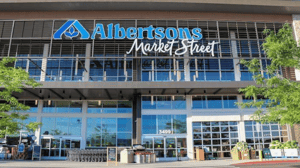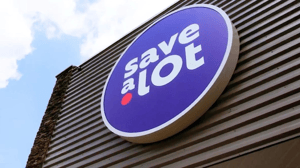Survey: Most consumers think U.S. is in recessionSurvey: Most consumers think U.S. is in recession
Nearly two-thirds also believe that the nation’s economy will get worse over the next few months, Numerator research shows.

Improved economic indicators apparently haven’t swayed U.S. consumers that the nation isn’t in a recession.
Numerator’s latest Consumer Sentiment Study found that 63% of Americans feel the United States is currently experiencing a recession. What’s more, the consumer data specialist reported, 63% of over 1,000 respondents in the monthly survey think the U.S. economy will worsen in the next few months.
A range of concerns are driving consumers’ pessimistic outlook, according to Numerator. For one, 73% of those polled said they expect inflation to climb, despite a steady decline in the Consumer Price Index (CPI) over the past 12 months. Overall inflation came in up 3% year over year for June, down from 4% in May, 4.9% in April, 5% in March, 6% in February and 6.4% in January.
Meanwhile, grocery prices have continued to fall as the June food-at-home index rose just 4.7% annually, down from 5.8% in May, 7.1% in April, 8.4% in March, 10.2% in February and 11.3% in January.
Numerator noted that 59% of consumers surveyed said rising gas prices are squeezing their ability to make other purchases. Sixty-one precent named rising fuel prices as an economic concern, yet 72% cited escalating prices on essential goods and services as worrisome.

American consumers continue to hold a negative outlook for U.S. economic conditions, according to Numerator's July Consumer Sentiment study. / Image courtesy of Numerator
Also, with the war in Ukraine still raging, 18% pointed to world events as a potential negative impact on the U.S. economy. Other concerns included negative impacts on retirement/pension plans (42%), government benefit reductions (31%), stock market stability (27%) and job security/unemployment (19%).
In response, consumers told Numerator they’re scaling back on discretionary spending. Of those polled, 70% reported being uncomfortable spending on luxury/premium goods and services. Likewise, over 60% are uncomfortable with withdrawal from savings accounts, and half are uncomfortable investing money in the stock market.
Where do shoppers plan to cut spending? Over the next few months, respondents expect to rein in spending for restaurants/bars/food delivery (cited by 39%), travel (37%), clothing (34%), electronics (33%), snacks and candy (25%), toys/games/arts and crafts (25%), alcohol (22%), health and beauty care (19%), home/garden supplies (18%) and household products (15%), Numerator’s research showed. Thirty percent don’t plan to cut back on their spending.
Recession fears come amid not just falling inflation but also a continued expanding job market and strong retail spending. In June, the U.S. unemployment rate dipped to 3.6% in June from 3.7% in May, and the nation added 209,000 jobs month to month and 3.79 million jobs year over year. Also in June, U.S. retail sales—which account for around 70% of the U.S. economy—rose 1.5% year over year even with declining inflation.
Predictions for recession have eased off
Economists’ concerns about an impending recession also have deflated since the start of the year. A report last week from Goldman Sachs pegged the chance of a U.S. recession happening over the next 12 months at 20%, down from 25% about a month ago.
“That’s still slightly above the unconditional average post-war probability of 15%—a recession has occurred approximately every seven years—but far below the 54% median among forecasters in the latest Wall Street Journal survey (which is down from 61% three months ago),” Goldman Sachs stated in its report.
Goldman Sachs noted that its chief economist, Jan Hatzius—who in November forecast a recession as unlikely in 2023—sees U.S. economic activity as “resilient,” and the investment firm said data indicate that U.S. second-quarter GDP is tracking at 2.3% year-over-year growth. The report also cited decreasing inflation, ongoing low unemployment, rebounding consumer confidence and other indicators as pointing away from a recession.
Still, the U.S. isn’t totally out of the woods with inflation. According to Goldman Sachs Research, the Federal Reserve is “almost certain” to raise interest rates by 25 basis points to 5.25% to 5.5% at its July 25-26 meeting. “But our economists expect it to be the last of the cycle,” the Goldman Sachs report said.
About the Author
You May Also Like






